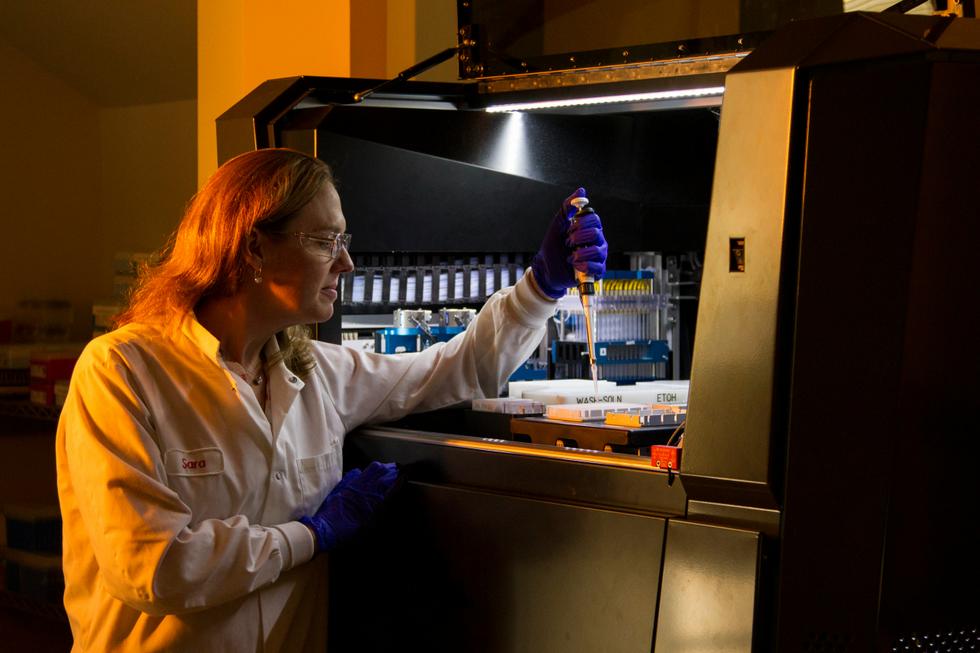Quick version
Common blood tests for cancer diagnosis and follow-up
Tumor markers are substances that can be measured in the blood and are produced by tumor cells or by the body in response to a tumor. These play a crucial role in modern medicine to diagnose, monitor and evaluate the effectiveness of treatment in cancer. Although they are not always reliable on their own to make a diagnosis, it is an important complement to other diagnostic methods such as diagnostic imaging and biopsies.
What is a tumor marker?
Tumor markers are substances that are either produced directly by cancer cells or by the body in response to the presence of cancer. These substances can often be measured through blood tests and provide important information about the presence or development of cancer. There are several different types of tumor markers, each associated with specific cancers. Some of the most common markers are PSA, which is used to detect prostate cancer, and CA 125, which is used as a supplement in the diagnosis of ovarian cancer.
Common tumor markers and areas of use
Tumor markers offer several advantages at the same time as they can provide valuable information about the presence of the disease, progression and how well a treatment is working. They are also less invasive than other methods such as biopsy because they can be measured with a simple blood test. For certain types of cancer, such as prostate cancer and breast cancer, they have proven to be effective tools for early detection.
However, it is important to understand that tumor markers are not always reliable for making a diagnosis on their own and should therefore be combined with other diagnostic methods such as imaging and biopsies. They are not always specific and elevated levels can be caused by other diseases, such as inflammation or benign conditions.
This can lead to false positive results which can create unnecessary anxiety in the patient. False negative results can also occur, especially in the early stages of cancer, which means that the markers are not always reliable in detecting disease early.
PSA (Prostate Specific Antigen)
PSA is one of the best-known tumor markers and is mainly used to detect prostate cancer. However, elevated PSA levels can also occur in benign prostatic enlargement and inflammation, making it somewhat nonspecific. Regular PSA tests can help monitor disease progression in prostate cancer patients.
CA 125 (Cancer Antigen 125)
CA 125 is often used as a marker for ovarian cancer. However, elevated levels can also be seen in other conditions such as endometriosis and certain inflammatory diseases. CA 125 test is often used to monitor the effectiveness of treatment in patients with ovarian cancer.
CEA (Carcinoembryonic Antigen)
CEA is most commonly used in colorectal cancer but can also be elevated in other gastrointestinal diseases and certain inflammatory conditions. It is often used to monitor recurrence in patients treated for colorectal cancer.
CA 19-9 (Cancer antigen 19-9)
This marker is mainly used in pancreatic and bile duct cancer, but can also be elevated in liver and gastrointestinal diseases. CA 19-9 can help monitor treatment effectiveness in patients with these types of cancer.
CA 15-3 (Cancer antigen 15-3)
CA 15-3 is mainly used to follow up breast cancer, especially in metastatic disease. Elevated levels may indicate relapse or progression of the disease.
AFP (Alphafetoprotein)
AFP is an important marker for the diagnosis of testicular cancer and liver cancer. Elevated levels often indicate a worse prognosis but can also occur in liver cirrhosis or hepatitis.
Beta-2 microglobulin
This marker is mainly used to follow myeloma and certain types of lymphoma. Levels can also be affected by kidney disease, making it important to interpret the results in conjunction with other clinical findings.
Thyroglobulin
Thyroglobulin is valuable for monitoring treatment effectiveness in thyroid cancer. After surgery or radioiodine therapy, levels should drop, indicating successful treatment.
Important considerations when using tumor markers
It is important to understand that tumor markers do not always provide an accurate diagnosis on their own. For people considering ordering tumor markers through self-referral, it is important to understand that these tests do not always provide a definitive answer. An elevated value does not necessarily mean cancer, and additional tests may be required to make an accurate diagnosis. In addition, certain medications or conditions, such as kidney disease or inflammatory conditions, can affect the results.
Tumor markers of the future
Research in tumor markers continues to develop rapidly. New technologies such as "liquid biopsy", where tumor DNA is analyzed directly in the blood, and proteomics, where protein patterns are examined, are expected to improve cancer diagnostics in the future. These advances could make it possible to detect cancer even earlier and with greater precision than is possible today, which could lead to better treatment outcomes and longer survival for patients.






















